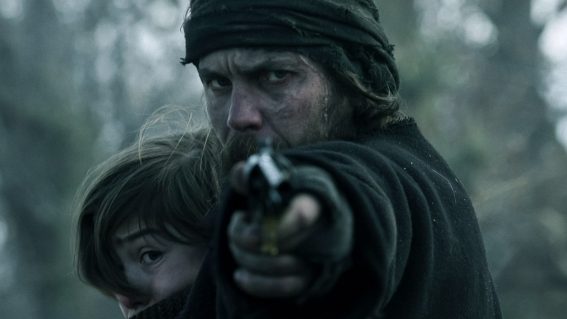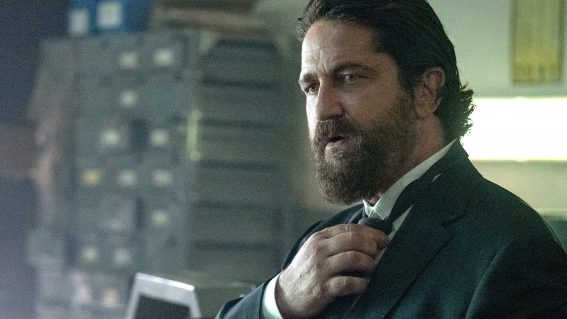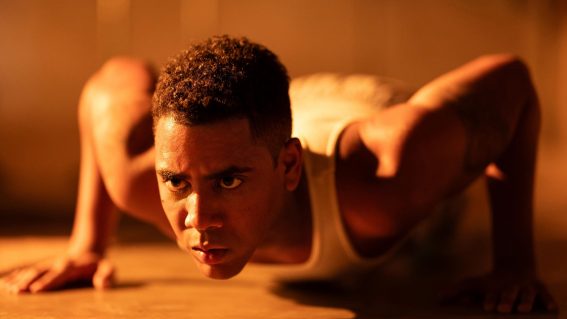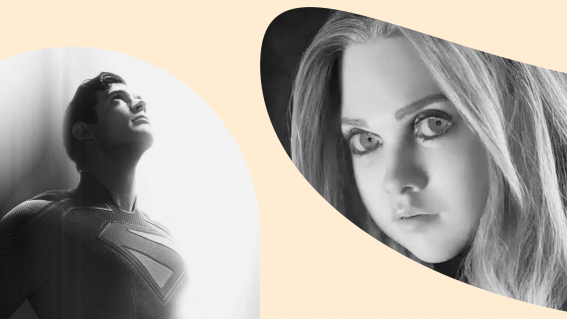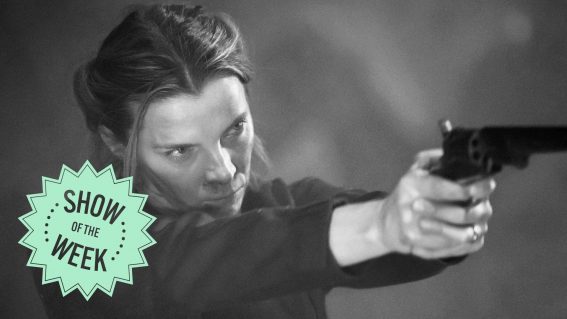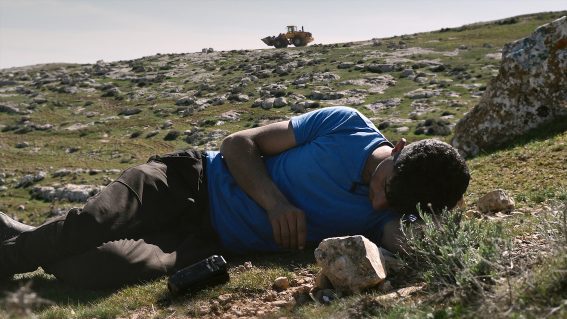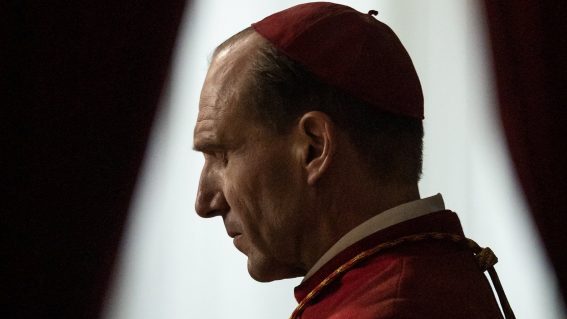Taika Waititi, Jemaine Clement, Lisa Kudrow and Kal-El Tuck talk Time Bandits series
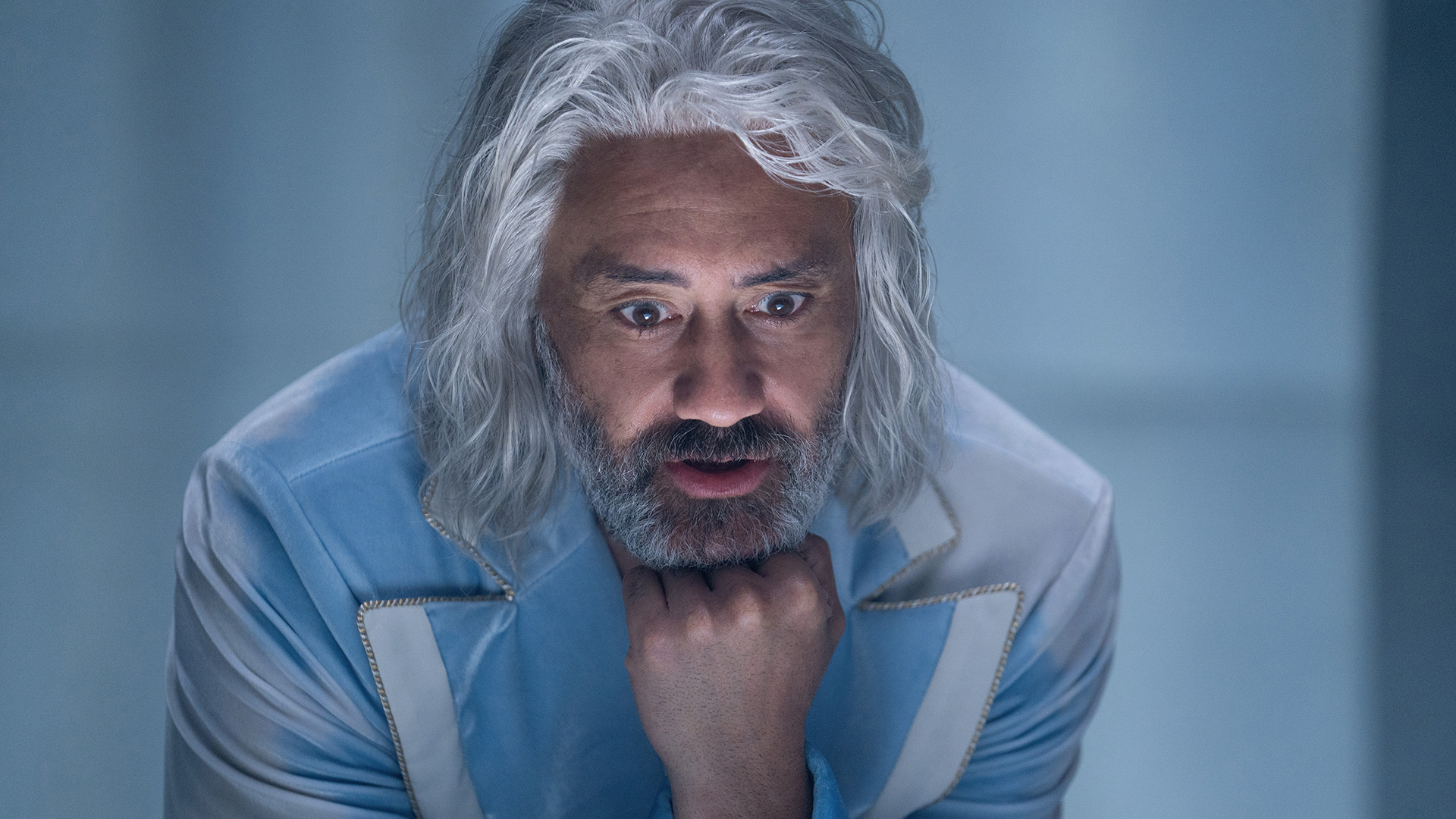
A new take on Terry Gilliam’s 1981 film, Lisa Kudrow and Kal-El Tuck star in new series Time Bandits, Steve Newall chats with the leads, as well as creators/actors Taika Waititi and Jemaine Clement.
“Everyone’s fantastic. And it’s really fun. It’s really beautiful—really beautiful.”
As New Zealanders, we never get tired of hearing how lovely our country is. And even if we did, it’s Lisa Kudrow I’m hearing these compliments from, so I choose to allow it.
“On behalf of New Zealand, thank you—and you’re welcome, Lisa,” I reply, getting a laugh.
We’re on Zoom to talk Time Bandits, a series inspired by the film of the same name, which was shot here in Aotearoa and now comes to the world via Apple TV+. And the praise for Kiwis keeps coming: “Every department was phenomenal talent,” Kudrow says. “The sets were extraordinary. The costumes were extraordinary. And everyone cares so much about their work. The whole thing was inspiring, honestly, because everyone is so good that you just want to show up as much as they are.”
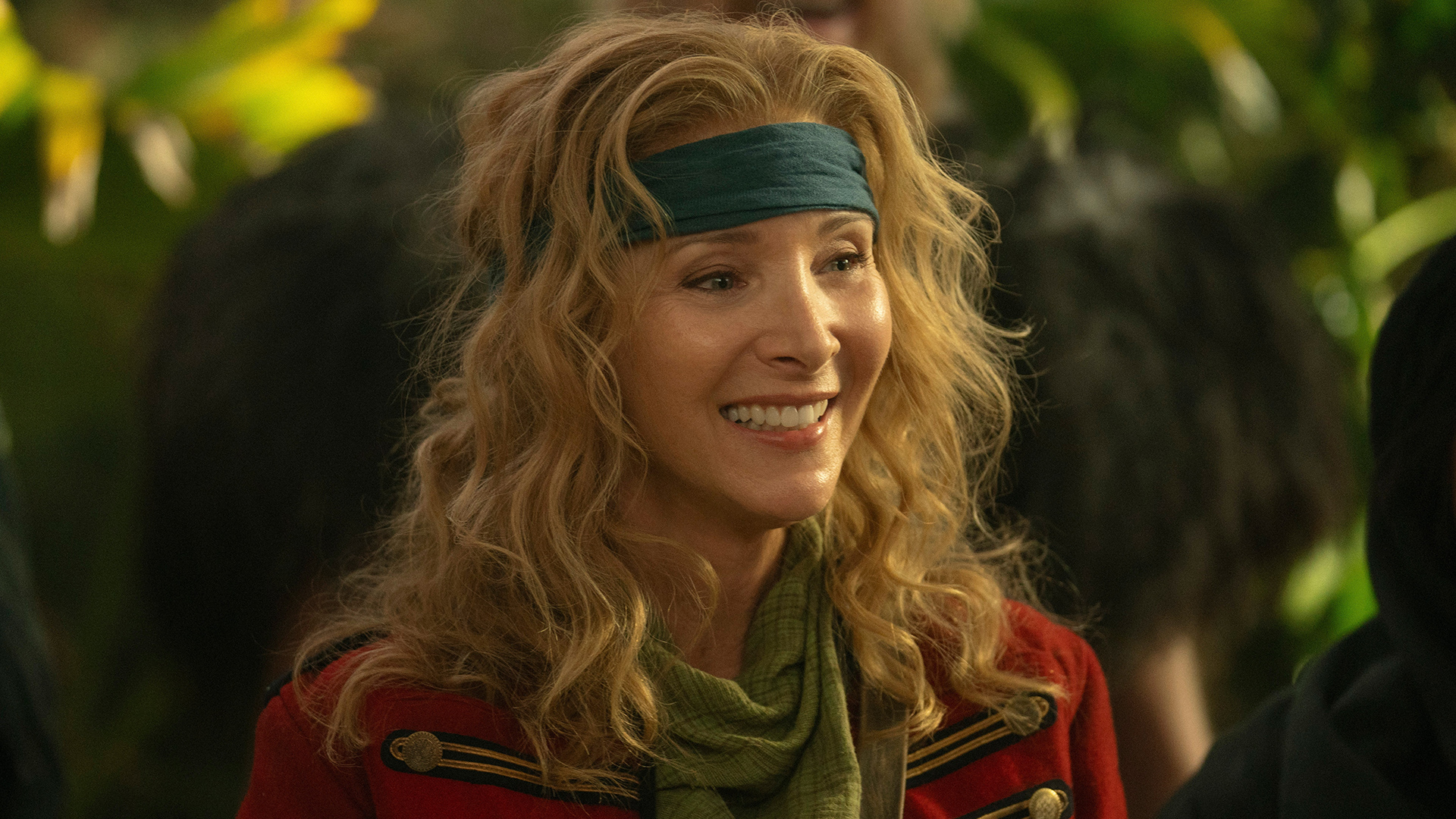
So how did Kudrow find herself in Aotearoa? She shares that she’s in a phase of “Who do I want to work with? And what do I want to experience?”
“Taika Waititi gets in touch and says ‘Jemaine and I wrote something that shoots in New Zealand, would you ever go there? And do you want to know more?’”
“I was like, ’yes, yes’. And then I find out it’s Time Bandits. And Iain Morris is also involved. And then ‘you have to be there in a month’. I love those quick decisions like that, too.”
If you haven’t figured it out, the Jemaine that Kudrow is referring to is frequent Waititi collaborator Jemaine Clement (and “Taika Waititi” is… Taika Waititi). At a later juncture, the two New Zealanders recall their own path to the project.
“Apple called you, right? …and you thought you probably hadn’t paid your phone bill?” Clement deadpans.
“I had to go for a meeting—and I thought I was going to be fired from some other job,” Waititi says. “I was in a big boardroom in Paramount. And there were lots of people in the room. And I didn’t know what the meeting was about—for ages. And then eventually someone mentioned Terry Gilliam, and I thought, ohhh I think this is about Time Bandits. And then I said, ‘Yeah, I’ll do that’. And then got Jemaine and our friend Iain to come and help.”
Clement says it seemed like a good time to leave “this vampire show” that he’d been working on for two years, and with The Inbetweeners’ Iain Morris, the three began writing this new Time Bandits series. As Waititi explains, he knew the others loved the film, Terry Gilliam’s other work and Monty Python, and shared similar tastes (they also cite The Princess Bride, Back to the Future, Blackadder and Fawlty Towers as influences on Time Bandits). As a trio, they wanted to do something that wasn’t exactly like the film but took the heart of it, and let them make their own version.
Like Gilliam’s 1981 family film, the Time Bandits series follows Kevin (played by Kal-El Tuck), a young history enthusiast caught up in an adventure with a gang of time-travelling thieves through different historical periods . Using portals to travel between eras and epochs, the series visits all sorts of places—and features some excellent actors in lead, supporting, and guest roles.
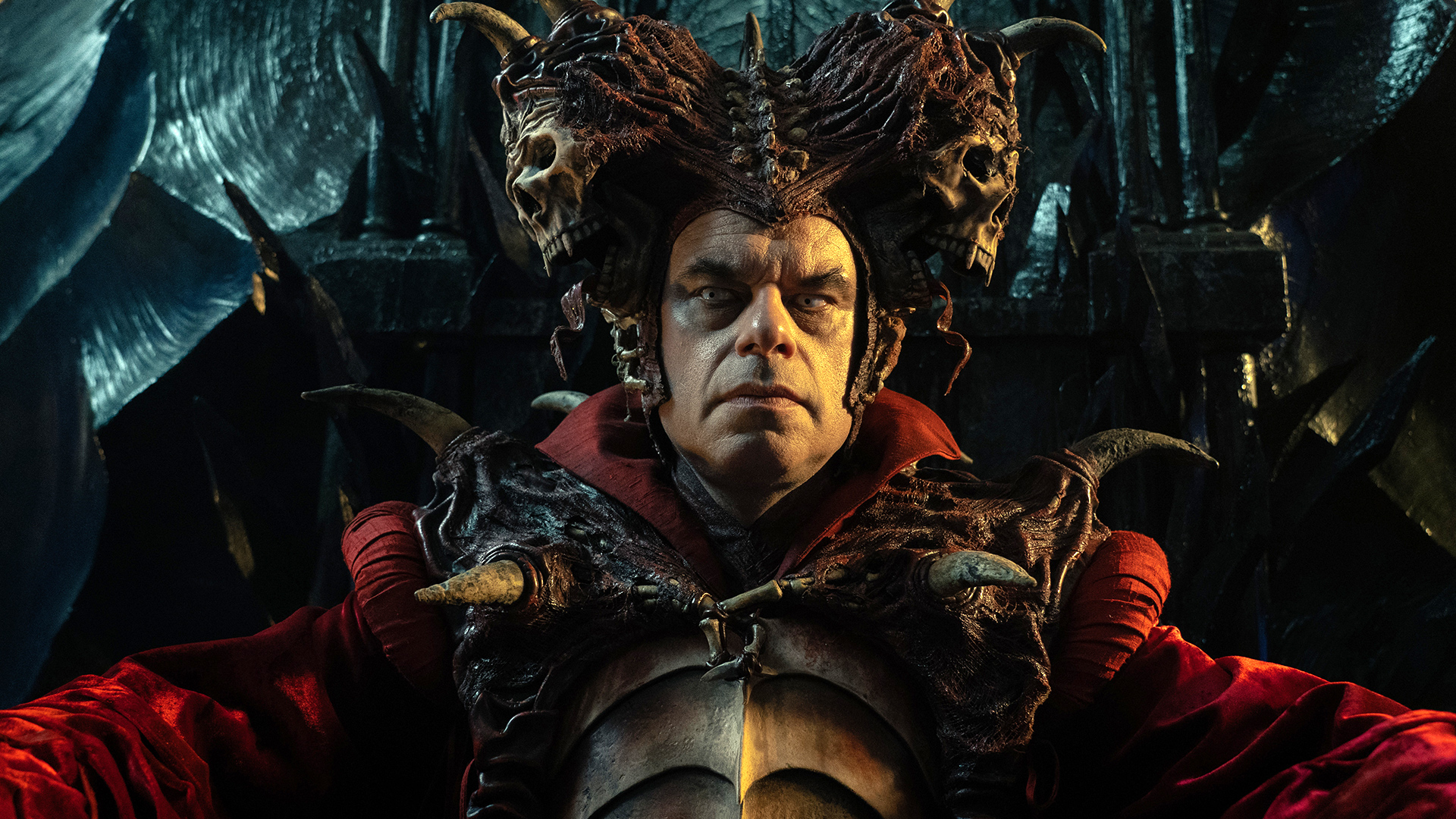
It’s the only show I can imagine where you’d have Lisa Kudrow and Mark Gatiss and Ginette McDonald in the same episode, I suggest to Clement and Waititi. So how did the alchemy of putting this cast together work?
They wanted a dynamic range of talents, a diverse cast and people who were really good at comedy, but could also carry the required emotion, Waititi explains: “Everything hinges around Kal-El Tuck, who plays Kevin. It’s his show and his journey, and then we were looking for someone to be the leader of the bandits. Originally, that role was written for a man, but then we thought, ‘Boooo to men.’”
Having wanted to work with Lisa for a long time, Waititi thought she’d be “so cool as the leader of this ragtag bunch of idiots.” Kudrow tells us the essence of the character is a sort of cowardly leader/not leader. “My first thing in talking to Taika and Jemaine was, ‘can she not be a coward?’” Kudrow says. “Because I love bravado. I love stupidly arrogant with nothing to back it up. And I think it’s fun when someone isn’t afraid when they maybe should be.”
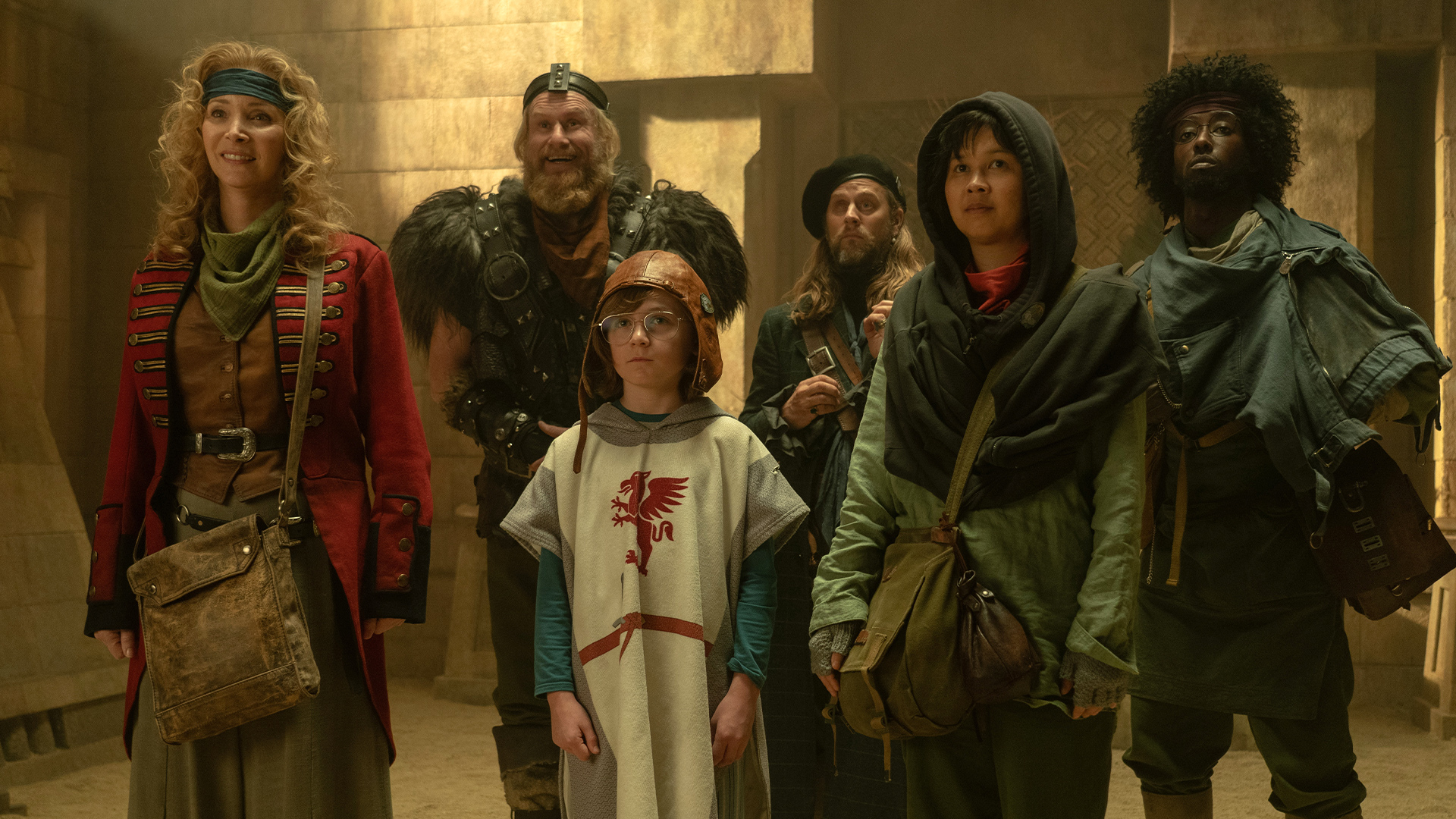
“Who hasn’t watched Friends?” says Kal-el Tuck, who’s just 12, when he talks about acting alongside Kudrow. “It’s so amazing to work with someone who’s so talented and has you’ve seen in TV shows and movies and I was taught that we make mistakes, we’re all human—but we can learn from our mistakes and become better.”
That’s a notion I’m reflecting on when the conversation with Waititi and Clement turns to comedy and the spectre of “political correctness”.
“I think that we have definitely lost a lot of freedom to, you know, be a bit more explorational with humour, and a little bit more experimental and a little bit more daring,” Waititi considers. “However, at the same time, there’s a lot of groups of people who were—you know, rightly so—quite offended by a lot of comedy over the years.”
“I think you need a mix of both of those things,” Waititi says of the balance between creative freedom and human empathy. He cites Ancient Romans finding it funny to put people in an arena and make them kill each other: “You’re like, ‘Oh, why can’t we do that anymore?’ So yeah, I think things have to change with entertainment.”
“We’ve been learning about this kind of stuff,” Clement adds. “There’s the Emperor Commodus in the Colosseum, he’d give people prizes, but sometimes the prize might be a scorpion, or something like that.”
“Why can’t we do that anymore?!” exclaims Waititi.
“Whatever feels edgy at the time will feel dated quickly,” Clement notes. “A lot of that Monty Python stuff still plays really well. And they often had a point that they were trying to get across, which still plays really well. If anything it can push you into just finding something new and creative. Try and find something else.”
Waititi turns interviewer, asking Clement: “Do you find Benny Hill’s stuff that funny? Some of it is ok.”
“I haven’t watched it again, says Clement. “But I liked it when I was young.” Waititi shares that he watched a little bit of it lately, noting some of it does not hold up—prompting Clement to ask: “Are you doing a gritty reboot of it?”
“That’s my next remake,” Waititi jokes. “An adaptation of all the Benny Hill sketches where he’s just chasing chicks in bikinis around beaches.”
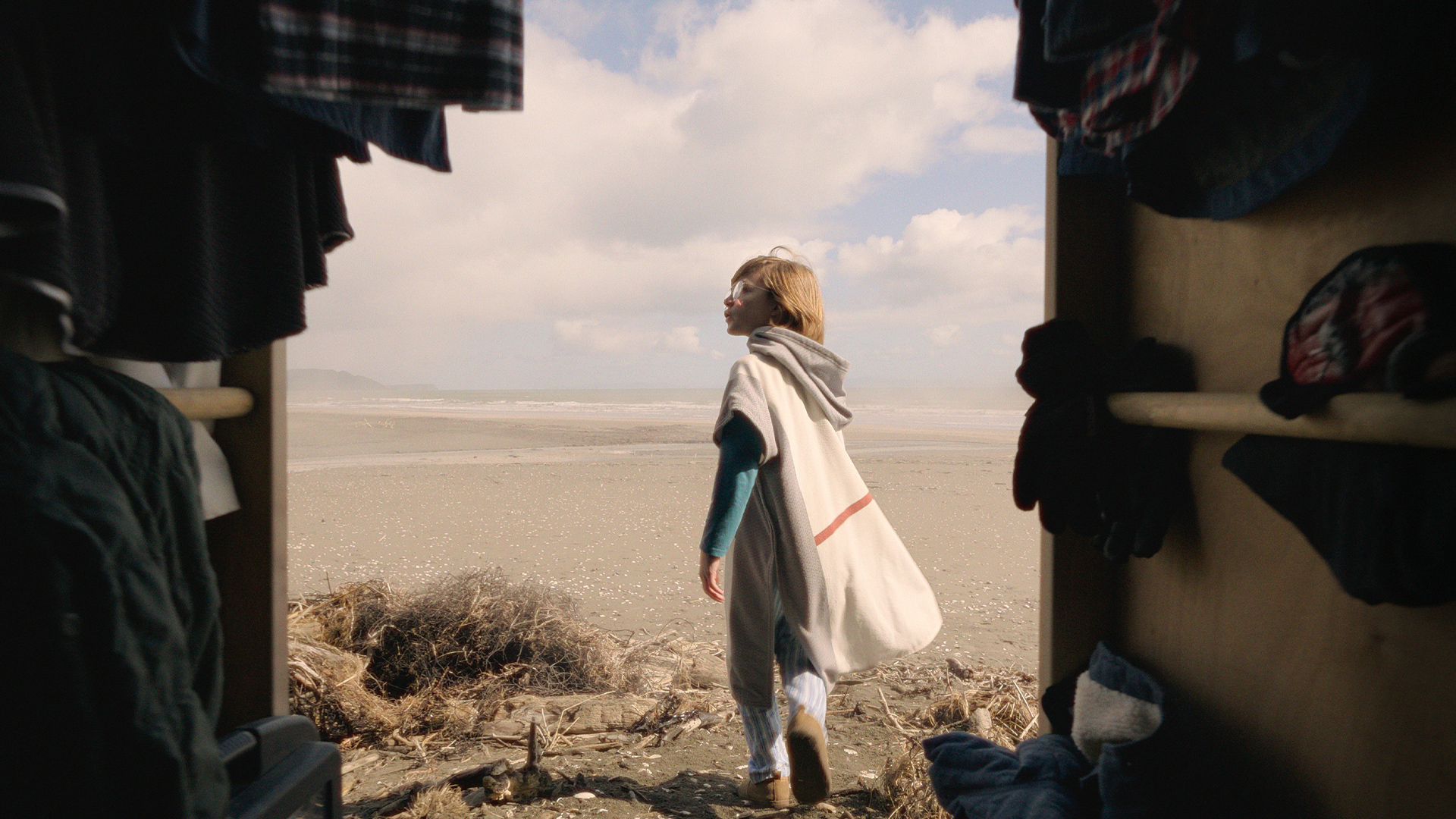
Time Bandits leaps all over the dial, from Mayan civilisation to mediaeval England, from prehistoric times to prohibition Harlem, its different settings coming from the writers making a list of different periods they’d want to visit if they could time travel.
“A lot of it also is poking fun of what we think is history, or what we believe from history books, which are often written by whoever wants to tell a certain version of history,” Waititi says. “We never really know exactly what’s going on. But still, I love the debate about what people really think Stonehenge was built for.” Time Bandits visits Stonehenge, poking fun at the fact that perhaps it wasn’t anything particularly special (and relishing some great tradie jokes in the process).
As a consequence of reading about Stonehenge online, Clement still gets news alerts about it, he says. “There’s this story about Stonehenge every week. Like, there’s a lot of Stonehenge news, considering how old it is, and that’s kind of a testament to how these monuments and things still capture people’s imagination and attention.”
The other side to people just having a idea of a culture’s history through written texts is that usually they’re western books, Waititi notes—which can help to justify taking over a country or colonising a place. “New Zealand certainly had stories about Māori or about where we’re from,” he says. “I think to make the English feel a bit better about taking over our land and stealing our land.”
“We’re from a colonised country, and we’re both Māori,” Clement adds. “So we relate to that, how the story gets told by the people doing the colonising.”
“Usually those cultures are way more civilised than they are portrayed in history books, and it’s very similar in Australia,” Waititi continues. “You know, the real history of the Aborigines is very different to what’s been told to people for the last 100 years, or 200 years.”
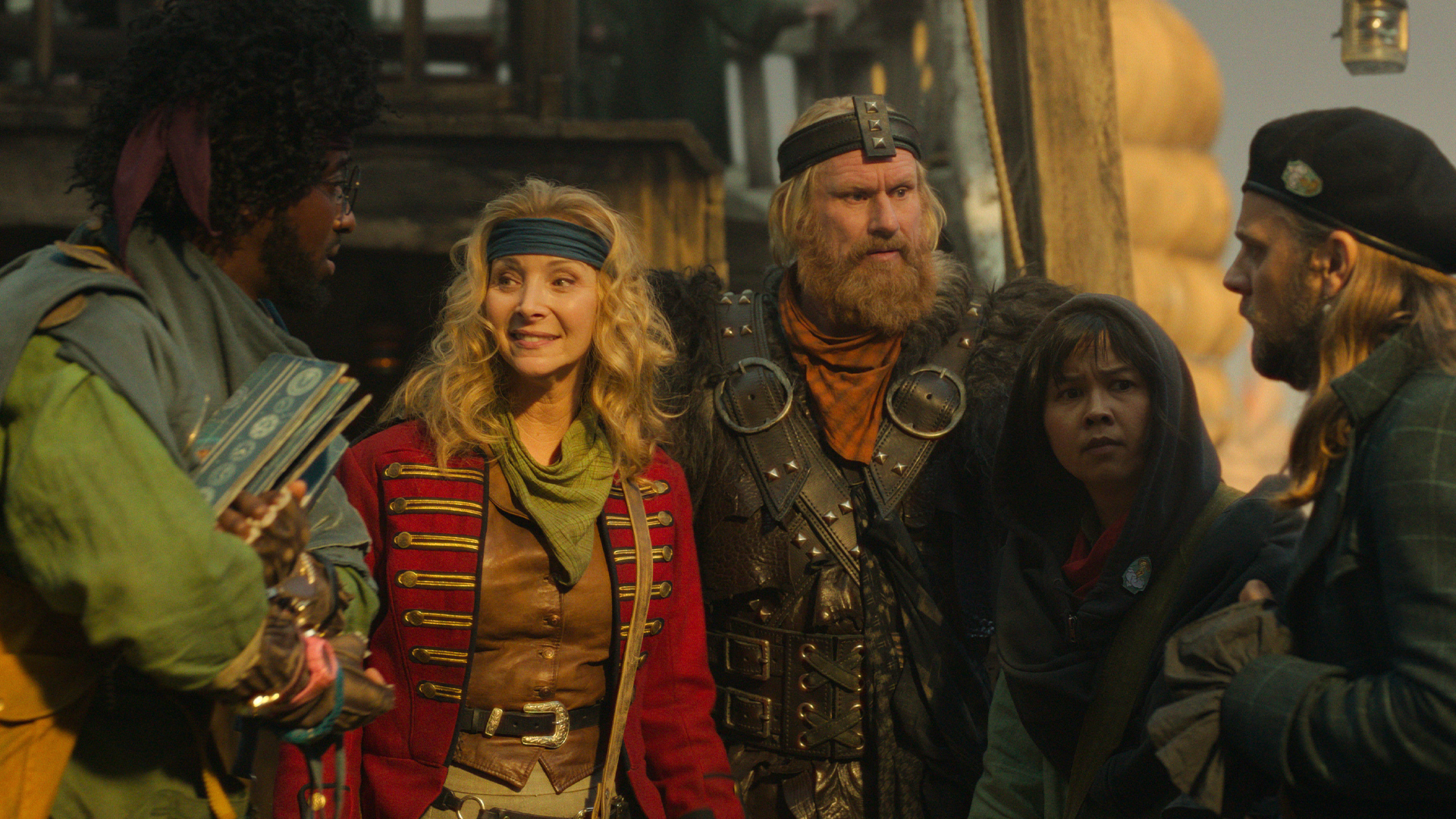
According to Clement, one of the fun parts in the writers room was talking to historians of each of the settings they were putting in the show. Not only were these experts keen to share their knowledge, and let history be told in a funny way, but they also wanted to set the record straight. Waititi remembers historians being quite particular about dispelling some of the myths about Mayans, and Clement expands on this a little: “We basically said what they said—a lot of the stories are from the conquerors. And so we went to a place before that, which you don’t see that often on TV and films.”
Also rare, according to Waititi, is a show that an entire family can enjoy together. “A lot of TV shows, they’re not as fun,” he says. “There’s not a big sense of adventure. This is one of the few TV shows that’s got a really big scale to it, like it feels like a big, big movie, especially one from the 80s or something.”
“A lot of the big shows, you can’t watch with your kids,” adds Clement, “We’re hoping that whole families can watch it. So that’s what we want to get from it.”
It sounds like the cast and crew got the experience of being a family out of this, too. As we reach the end of my chat with Kal-El Tuck, I spy he’s wearing a greenstone necklace and ask him about it. “I’ve got this is because I wanted to remember Time Bandits and my experience in New Zealand,” he tells me. “Something that I could have close to me and always look down and just remember the whole thing.”
Time Bandits will premiere Wednesday, 24 July on Apple TV+



